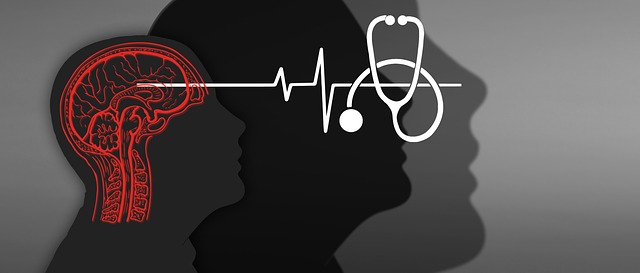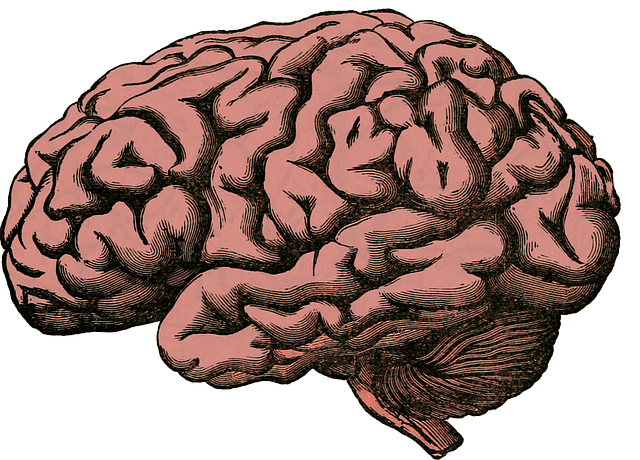Castle Rock Spiritual-Religious Issues Therapy is a specialized approach to managing anxiety, combining faith-based beliefs with coping strategies like mindfulness meditation and Cognitive Behavioral Therapy (CBT). This holistic method enhances self-esteem, promotes inner peace, and provides tools to reframe negative thoughts. By addressing spiritual and personal challenges, individuals gain resilience against anxiety, improving mental health and overall wellness through a supportive community environment.
Anxiety is a prevalent challenge, but managing it effectively can lead to a calmer, more fulfilling life. This comprehensive guide explores various techniques to combat anxiety, from understanding its root causes, including unique considerations for Castle Rock’s spiritual and religious communities, to evidence-based therapies like Cognitive Behavioral Therapy (CBT). Discover the power of mindfulness, lifestyle adjustments, and specialized treatments to tame anxiety and reclaim your well-being.
- Understanding Anxiety: Unraveling Castle Rock Spiritual-Religious Issues
- Therapy Approaches for Effective Anxiety Management
- Mindfulness and Meditation: Calming the Storm Within
- Cognitive Behavioral Therapy (CBT): Challenging Anxious Thoughts
- Lifestyle Adjustments for a Softer, Less Anxious You
Understanding Anxiety: Unraveling Castle Rock Spiritual-Religious Issues

Anxiety, a pervasive and complex emotion, often manifests as a response to perceived threats or stressors. When left unaddressed, it can develop into a debilitating condition that significantly impacts daily life. Understanding anxiety involves recognizing its root causes, especially in the realm of Castle Rock spiritual-religious issues. Many individuals struggle with anxiety rooted in their faith or personal beliefs, which may require specialized therapy for effective management.
In addressing Castle Rock spiritual-religious issues, therapy can play a pivotal role in stress management and self-esteem improvement. Techniques such as mindfulness meditation have proven beneficial in calming the mind and fostering a sense of inner peace. Through therapy, individuals can explore their spiritual beliefs, learn coping strategies tailored to their unique perspectives, and develop resilient mechanisms to navigate anxious thoughts and feelings.
Therapy Approaches for Effective Anxiety Management

Anxiety management is a multifaceted approach that often involves therapy as a core component. One effective method gaining traction in addressing anxiety disorders is Castle Rock Spiritual-Religious Issues Therapy. This therapeutic avenue leverages the power of faith and spiritual practices to help individuals cultivate inner peace, resilience, and coping mechanisms against anxiety. By exploring their spiritual beliefs and integrating them into their mental health journeys, clients can find solace and enhanced self-awareness.
The Mental Health Policy Analysis and Advocacy plays a crucial role in ensuring access to such therapeutic options. Empathy Building Strategies within the therapy sessions create safe spaces for individuals to express their fears and concerns openly. Additionally, the Mind Over Matter Principles emphasize the connection between thoughts and emotions, empowering clients to reframe negative thought patterns into more positive ones, which are key components of anxiety management.
Mindfulness and Meditation: Calming the Storm Within

Anxiety can feel like a storm raging within, but mindfulness and meditation offer a sanctuary where one can find calm amidst the chaos. These practices have become powerful tools in Castle Rock spiritual-religious issues therapy, helping individuals navigate their mental health journeys. By focusing on the present moment and cultivating awareness of thoughts and sensations without judgment, people can learn to soothe their minds and reduce anxious responses.
Mindfulness meditation encourages individuals to observe their stress management workshops organization internally, identifying triggers and patterns while accepting them non-reactively. This self-awareness is a game-changer in managing anxiety, enabling better communication strategies and confidence-boosting techniques. Through regular practice, one can transform from being a passive observer of anxiety to a captain steering their mental ship through turbulent waters with resilience and composure.
Cognitive Behavioral Therapy (CBT): Challenging Anxious Thoughts

Cognitive Behavioral Therapy (CBT) is a powerful tool for managing anxiety by challenging and changing anxious thoughts. This therapy focuses on identifying and modifying negative thought patterns that contribute to feelings of anxiety, providing individuals with effective coping mechanisms. Through CBT, individuals learn to recognize and question their anxious thoughts, replacing them with more realistic and positive ones. It’s not just about eliminating worries; it empowers folks to develop a healthier perspective, fostering mental wellness in the process.
In Castle Rock, spiritual-religious issues therapy often incorporates elements of CBT to address anxiety. By integrating self-care practices, therapists guide clients towards anxiety relief and improved overall mental health. This holistic approach encourages individuals to explore their beliefs and values while adopting healthy strategies for managing stress and anxious thoughts, contributing to a more balanced lifestyle.
Lifestyle Adjustments for a Softer, Less Anxious You

In managing anxiety, making lifestyle adjustments can significantly contribute to a calmer and less anxious state of being. This involves adopting healthier habits that cater to both mind and body. Regular exercise, for instance, releases endorphins known to boost mood and reduce stress levels. Incorporating mindfulness practices such as meditation or deep breathing exercises can help individuals stay grounded in the present moment, thereby mitigating anxiety’s grip on thoughts.
Additionally, fostering meaningful connections through community outreach programs and trauma support services offers a strong support system. Effective communication strategies within these groups facilitate the sharing of experiences and coping mechanisms. The sense of belonging and understanding derived from such interactions can be profoundly therapeutic. Moreover, engaging in activities that bring joy and a sense of purpose—whether hobbies, creative pursuits, or volunteering—can alleviate anxiety by shifting focus towards positive, fulfilling aspects of life.
Anxiety management is a multifaceted journey, and by combining therapeutic approaches with lifestyle adjustments, individuals in Castle Rock can effectively navigate and overcome their spiritual-religious issues. Integrating mindfulness practices, cognitive behavioral therapy (CBT), and thoughtful lifestyle changes allows for holistic healing. Embracing these techniques empowers folks to take charge of their mental well-being, fostering a calmer and more serene existence. Through tailored therapy and self-care, managing anxiety becomes an achievable goal, leading to improved overall happiness and quality of life.










